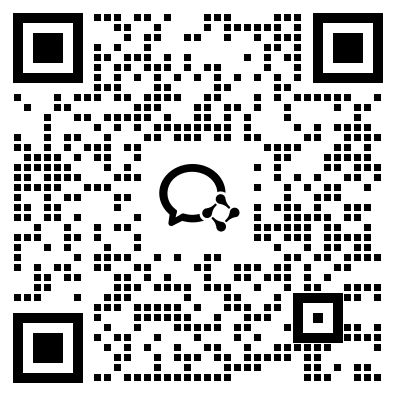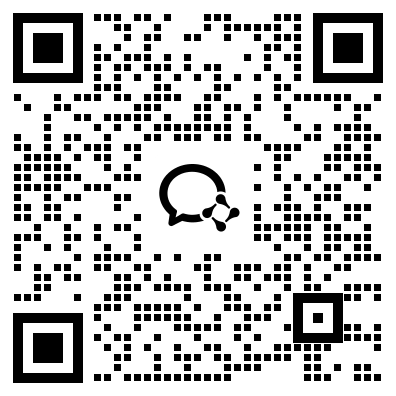考研201英语(一)在线题库每日一练(一百一十)
摘要:以下是希赛网给大家分享考研201英语(一)在线题库每日一练,希望通过刷题可以帮助大家巩固重要知识点,对知识点查漏补缺,祝愿大家能顺利通过考试!
本文提供考研201英语(一)在线题库每日一练,以下为具体内容
1、In 1924 America's National Research Council sent two engineers to supervise a series of industrial experiments at a large telephone-parts factory called the Hawthorne Plant near Chicago. It hoped they would learn how stop-floor lighting (1)workers' productivity. Instead, the studies ended (2) giving their name to the "Hawthorne effect", the extremely influential idea that the very (3) to being experimented upon changed subjects' behavior. The idea arose because of the behavior of the women in the (4) Hawthorne plant. According to (5) of the experiments, their hourly output rose when lighting was increased, but also when it was dimmed. It did not (6) what was done in the experiment; (7)something was changed, productivity rose. A(n) (8) that they were being experimented upon seemed to be (9) to alter workers' behavior (10) itself. After several decades, the same data were (11) to econometric the analysis. Hawthorne experiments has another surprise in store (12) the descriptions on record, no systematic (13) was found that levels of productivity were related to changes in lighting. It turns out that peculiar way of conducting the experiments may have led to (14) interpretation of what happened. (15), lighting was always changed on a Sunday. When work started again on Monday, output (16) rose compared with the previous Saturday and (17) to rise for the next couple of days. (18), a comparison with data for weeks when there was no experimentation showed that output always went up on Monday, workers (19) to be diligent for the first few days of the week in any case, before (20) a plateau and then slackening off. This suggests that the alleged "Hawthorne effect" is hard to pin down.
问题1
A、affected
B、achieved
C、extracted
D、restored
问题2
A、at
B、up
C、with
D、off
问题3
A、truth
B、sight
C、act
D、proof
问题4
A、controversial
B、perplexing
C、mischievous
D、ambiguous
问题5
A、requirements
B、explanations
C、accounts
D、assessments
问题6
A、conclude
B、matter
C、indicate
D、work
问题7
A、as far as
B、for fear that
C、in case that
D、so long as
问题8
A、awareness
B、expectation
C、sentiment
D、illusion
问题9
A、suitable
B、excessive
C、enough
D、abundant
问题10
A、about
B、for
C、on
D、by
问题11
A、compared
B、shown
C、subjected
D、conveyed
问题12
A、contrary to
B、consistent with
C、parallel with
D、peculiar to
问题13
A、evidence
B、guidance
C、implication
D、source
问题14
A、disputable
B、enlightening
C、reliable
D、misleading
问题15
A、In contrast
B、For example
C、In consequence
D、As usual
问题16
A、duly
B、accidentally
C、unpredictably
D、suddenly
问题17
A、failed
B、ceased
C、started
D、continued
问题18
A、Therefore
B、Furthermore
C、However
D、Meanwhile
问题19
A、attempted
B、tended
C、chose
D、intended
问题20
A、breaking
B、climbing
C、surpassing
D、hitting
2、The decision of the New York Philharmonic to hire Alan Gilbert as its next music director has been the talk of the classical-music world ever since the sudden announcement of his appointment in 2009. For the most part, the response has been favorable, to say the least. “Hooray! At last!” wrote Anthony Tommasini, a sober-sided classical-music critic. One of the reasons why the appointment came as such a surprise, however, is that Gilbert is comparatively little known. Even Tommasini, who had advocated Gilbert's appointment in the Times, calls him “an unpretentious musician with no air of the formidable conductor about him.” As a description of the next music director of an orchestra that has hitherto been led by musicians like Gustav Mahler and Pierre Boulez, that seems likely to have struck at least some Times readers as faint praise. For my part, I have no idea whether Gilbert is a great conductor or even a good one. To be sure, he performs an impressive variety of interesting compositions, but it is not necessary for me to visit Avery Fisher Hall, or anywhere else, to hear interesting orchestral music. All I have to do is to go to my CD shelf, or boot up my computer and download still more recorded music from iTunes. Devoted concertgoers who reply that recordings are no substitute for live performance are missing the point. For the time, attention, and money of the art-loving public, classical instrumentalists must compete not only with opera houses, dance troupes, theater companies, and museums, but also with the recorded performances of the great classical musicians of the 20th century. There recordings are cheap, available everywhere, and very often much higher in artistic quality than today's live performances; moreover, they can be “consumed” at a time and place of the listener's choosing. The widespread availability of such recordings has thus brought about a crisis in the institution of the traditional classical concert. One possible response is for classical performers to program attractive new music that is not yet available on record. Gilbert's own interest in new music has been widely noted: Alex Ross, a classical-music critic, has described him as a man who is capable of turning the Philharmonic into “a markedly different, more vibrant organization.” But what will be the nature of that difference? Merely expanding the orchestra's repertoire will not be enough. If Gilbert and the Philharmonic are to succeed, they must first change the relationship between America's oldest orchestra and the new audience it hopes to attract. 1.We learn from Para.1 that Gilbert's appointment has( ).2.Tommasini regards Gilbert as an artist who is ( ). 3.The author believes that the devoted concertgoers ( ). 4.According to the text, which of the following is true of recordings? 5.Regarding Gilbert's role in revitalizing the Philharmonic, the author feels( ).
问题1
A、incurred criticism
B、raised suspicion
C、received acclaim
D、aroused curiosity
问题2
A、influential
B、modest
C、respectable
D、talented
问题3
A、ignore the expenses of live performances
B、reject most kinds of recorded performances
C、exaggerate the variety of live performances
D、overestimate the value of live performances
问题4
A、They are often inferior to live concerts in quality.
B、They are easily accessible to the general public.
C、They help improve the quality of music.
D、They have only covered masterpieces.
问题5
A、doubtful
B、enthusiastic
C、confident
D、puzzled
3、When Liam McGee departed as president of Bank of America in August, his explanation was surprisingly straight up. Rather than cloaking his exit in the usual vague excuses, he came right out and said he was leaving “to pursue my goal of running a company.” Broadcasting his ambition was “very much my decision,” McGee says. Within two weeks, he was talking for the first time with the board of Hartford Financial Services Group, which named him CEO and chairman on September 29. McGee says leaving without a position lined up gave him time to reflect on what kind of company he wanted to run. It also sent a clear message to the outside world about his aspirations. And McGee isn't alone. In recent weeks the No.2 executives at Avon and American Express quit with the explanation that they were looking for a CEO post. As boards scrutinize succession plans in response to shareholder pressure, executives who don't get the nod also may wish to move on. A turbulent business environment also has senior managers cautious of letting vague pronouncements cloud their reputations. As the first signs of recovery begin to take hold, deputy chiefs may be more willing to make the jump without a net. In the third quarter, CEO turnover was down 23% from a year ago as nervous boards stuck with the leaders they had, according to Liberum Research. As the economy picks up, opportunities will abound for aspiring leaders. The decision to quit a senior position to look for a better one is unconventional. For years executives and headhunters have adhered to the rule that the most attractive CEO candidates are the ones who must be poached. Says Korn/Ferry senior partner Dennis Carey: “I can't think of a single search I've done where a board has not instructed me to look at sitting CEOs first.” Those who jumped without a job haven't always landed in top positions quickly. Ellen Marram quit as chief of Tropicana a decade age, saying she wanted to be a CEO. It was a year before she became head of a tiny Internet-based commodities exchange. Robert Willumstad left Citigroup in 2005 with ambitions to be a CEO. He finally took that post at a major financial institution three years later. Many recruiters say the old disgrace is fading for top performers. The financial crisis has made it more acceptable to be between jobs or to leave a bad one. “The traditional rule was it's safer to stay where you are, but that's been fundamentally inverted,” says one headhunter. “The people who've been hurt the worst are those who’ve stayed too long.” 1.When McGee announced his departure, his manner can best be described as being( ).2.According to Paragraph 2, senior executives' quitting may be spurred by( ). 3.The word “poached” (Line 2, Paragraph 4) most probably means ( ). 4.It can be inferred from the last paragraph that ( ). 5.Which of the following is the best title for the text?
问题1
A、arrogant
B、frank
C、self-centered
D、impulsive
问题2
A、their expectation of better financial status
B、their need to reflect on their private life
C、their strained relations with the boards
D、their pursuit of new career goals
问题3
A、approved of
B、attended to
C、hunted for
D、guarded against
问题4
A、top performers used to cling to their posts
B、loyalty of top performers is getting out-dated
C、top performers care more about reputations
D、it's safer to stick to the traditional rules
问题5
A、CEOs: Where to Go?
B、CEOs: All the Way Up?
C、Top Managers Jump without a Net.
D、The Only Way Out for Top Performers.
4、The ethical judgments of the Supreme Court justices have become an important issue recently. The court cannot(1)its legitimacy as guardian of the rule of law(2)justices behave like politicians. Yet, in several instances, justices acted in ways that(3) the court's reputation for being independent and impartial. Justice Antonin Scalia, for example, appeared at political events. That kind of activity makes it less likely that the court's decisions will be(4)as impartial judgments. Part of the problem is that the justices are not(5) by an ethics code. At the very least, the court should make itself (6) to the code of conduct that (7) to the rest of the federal judiciary. This and other similar cases (8) the question of whether there is still a (9) between the court and politics. The framers of the Constitution envisioned law (10) having authority apart from politics. They gave justices permanent positions (11) they would be free to (12 )those in power and have no need to (13)political support. Our legal system was designed to set law apart from politics precisely because they are so closely (14) . Constitutional law is political because it results from choices rooted in fundamental social (15) like liberty and property. When the court deals with social policy decisions, the law it (16)is inescapably political—which is why decisions split along ideological lines are so easily (17) as unjust. The justices must (18) doubts about the court's legitimacy by making themselves (19) to the code of conduct. That would make rulings more likely to be seen as separate from politics and, (20), convincing as law.
问题1
A、emphasize
B、maintain
C、modify
D、recognize
问题2
A、when
B、lest
C、before
D、unless
问题3
A、restored
B、weakened
C、established
D、eliminated
问题4
A、challenged
B、compromised
C、suspected
D、accepted
问题5
A、advanced
B、caught
C、bound
D、founded
问题6
A、resistant
B、subject
C、immune
D、prone
问题7
A、resorts
B、sticks
C、loads
D、applies
问题8
A、evade
B、raise
C、deny
D、settle
问题9
A、line
B、barrier
C、similarity
D、conflict
问题10
A、by
B、as
C、though
D、towards
问题11
A、so
B、since
C、provided
D、though
问题12
A、serve
B、satisfy
C、upset
D、replace
问题13
A、confirm
B、express
C、cultivate
D、offer
问题14
A、guarded
B、followed
C、studied
D、tied
问题15
A、concepts
B、theories
C、divisions
D、conventions
问题16
A、excludes
B、questions
C、shapes
D、controls
问题17
A、dismissed
B、released
C、ranked
D、distorted
问题18
A、suppress
B、exploit
C、address
D、ignore
问题19
A、accessible
B、amiable
C、agreeable
D、accountable
问题20
A、by all means
B、at all costs
C、in a word
D、as a result
5、In the idealized version of how science is done, facts about the world are waiting to be observed and collected by objective researchers who use the scientific method to carry out their work. But in the everyday practice of science, discovery frequently follows an ambiguous and complicated route. We aim to be objective, but we cannot escape the context of our unique life experience. Prior knowledge and interest influence what we experience, what we think our experiences mean, and the subsequent actions we take. Opportunities for misinterpretation, error, and self-deception abound. Consequently, discovery claims should be thought of as protoscience. Similar to newly staked mining claims, they are full of potential. But it takes collective scrutiny and acceptance to transform a discovery claim into a mature discovery. This is the credibility process, through which the individual researcher's me, here, now becomes the community's anyone, anywhere, anytime. Objective knowledge is the goal, not the starting point. Once a discovery claim becomes public, the discoverer receives intellectual credit. But, unlike with mining claims, the community takes control of what happens next. Within the complex social structure of the scientific community, researchers make discoveries; editors and reviewers act as gatekeepers by controlling the publication process; other scientists use the new finding to suit their own purposes; and finally, the public (including other scientists) receives the new discovery and possibly accompanying technology. As a discovery claim works it through the community, the interaction and confrontation between shared and competing beliefs about the science and the technology involved transforms an individual's discovery claim into the community's credible discovery. Two paradoxes exist throughout this credibility process. First, scientific work tends to focus on some aspect of prevailing Knowledge that is viewed as incomplete or incorrect. Little reward accompanies duplication and confirmation of what is already known and believed. The goal is new-search, not re-search. Not surprisingly, newly published discovery claims and credible discoveries that appear to be important and convincing will always be open to challenge and potential modification or refutation by future researchers. Second, novelty itself frequently provokes disbelief. Nobel Laureate and physiologist Albert Azent-Gyorgyi once described discovery as “seeing what everybody has seen and thinking what nobody has thought.” But thinking what nobody else has thought and telling others what they have missed may not change their views. Sometimes years are required for truly novel discovery claims to be accepted and appreciated. In the end, credibility “happens” to a discovery claim—a process that corresponds to what philosopher Annette Baier has described as the commons of the mind. “We reason together, challenge, revise, and complete each other's reasoning and each other's conceptions of reason.” 1.According to the first paragraph, the process of discovery is characterized by its( ).2.It can be inferred from Paragraph 2 that credibility process requires ( ). 3.Paragraph 3 shows that a discovery claim becomes credible after it ( ). 4.Albert Szent-Gyorgyi would most likely agree that ( ). 5.Which of the following would be the best title of the test?
问题1
A、uncertainty and complexity
B、misconception and deceptiveness
C、logicality and objectivity
D、systematicness and regularity
问题2
A、strict inspection
B、shared efforts
C、individual wisdom
D、persistent innovation
问题3
A、has attracted the attention of the general public
B、has been examined by the scientific community
C、has received recognition from editors and reviewers
D、has been frequently quoted by peer scientists
问题4
A、scientific claims will survive challenges
B、discoveries today inspire future research
C、efforts to make discoveries are justified
D、scientific work calls for a critical mind
问题5
A、Novelty as an Engine of Scientific Development.
B、Collective Scrutiny in Scientific Discovery.
C、Evolution of Credibility in Doing Science.
D、Challenge to Credibility at the Gate to Science.
点击查看【完整】试卷>>延伸阅读

考研微信公众号

考研备考资料免费领取
去领取
- 3
- 0
- 0
 专注在线职业教育25年
专注在线职业教育25年









 扫描二维码
扫描二维码
 扫描二维码
扫描二维码








